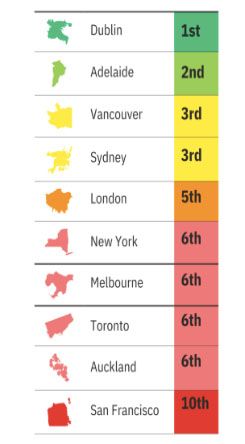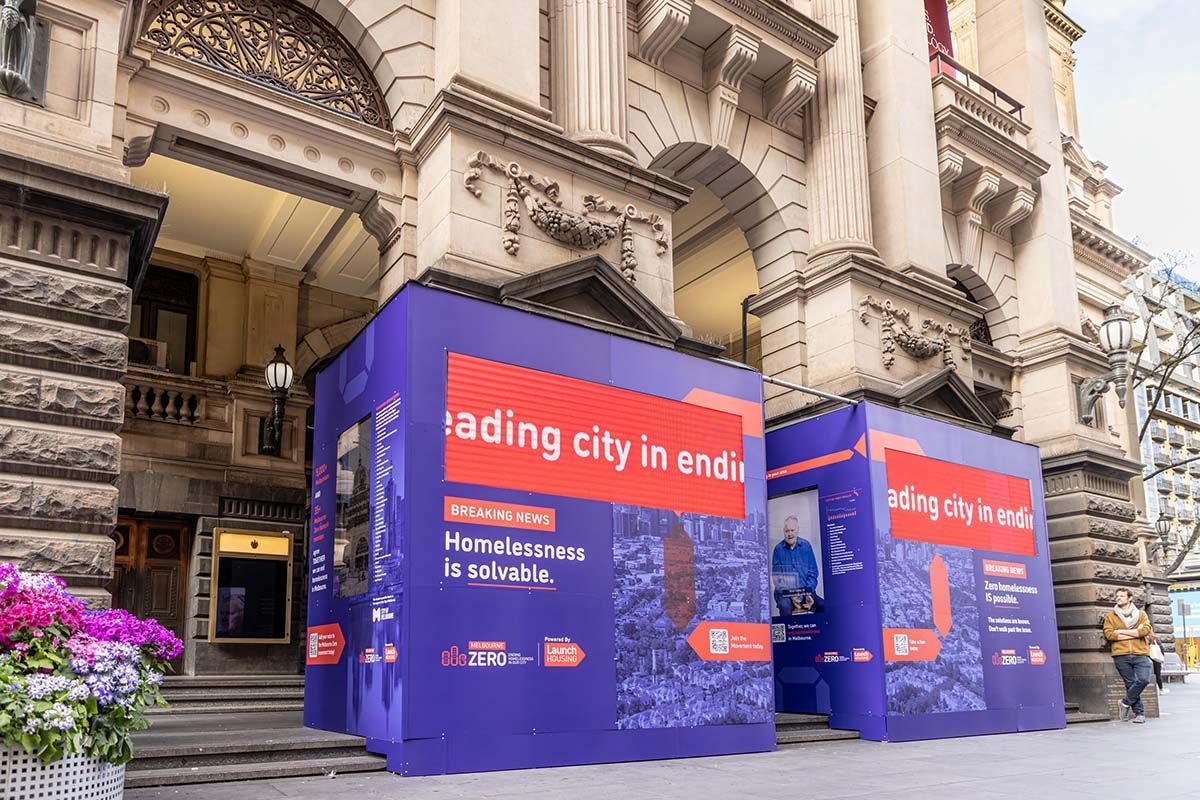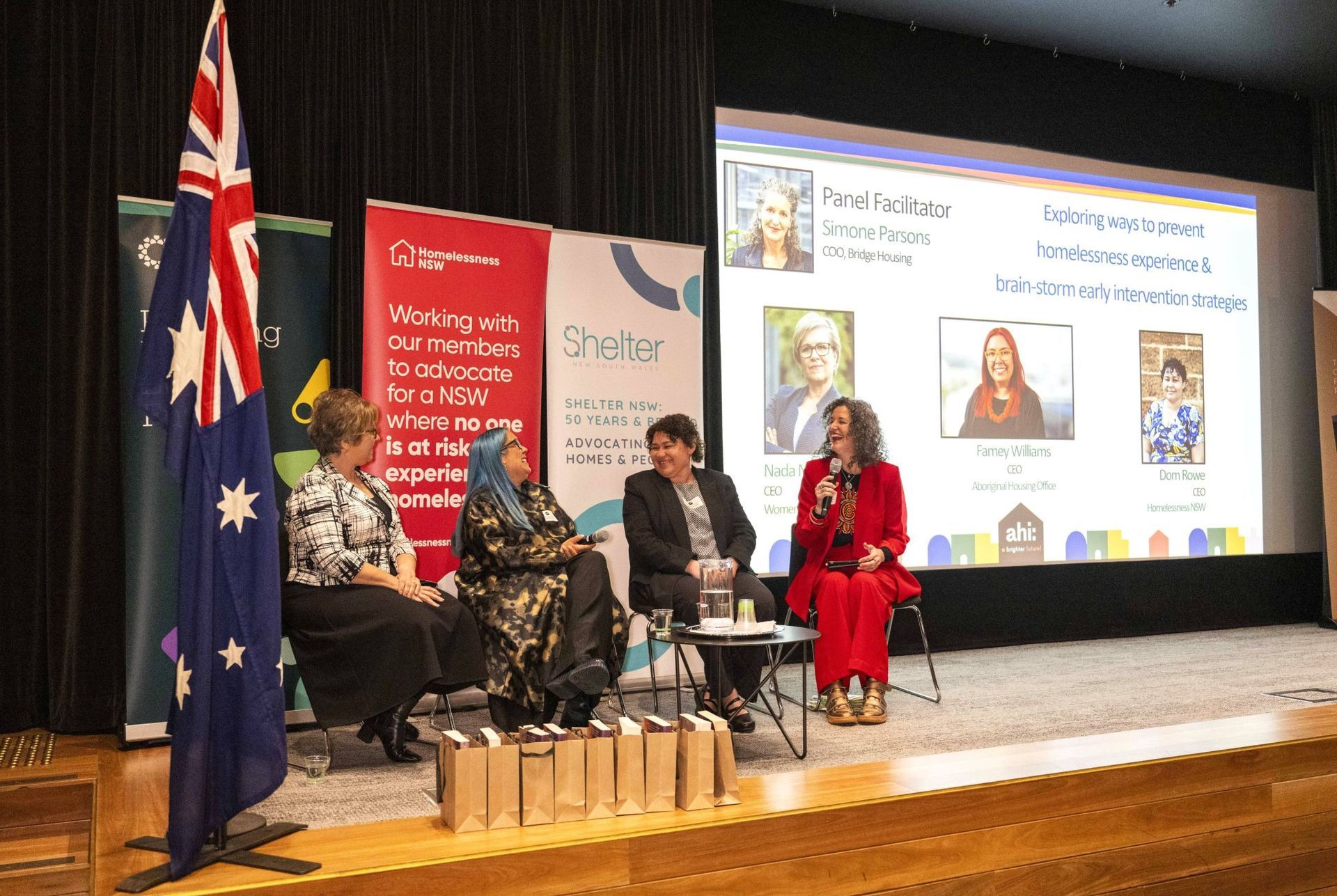How the 10 cities fared
Overall, Dublin came first out of the 10 cities, meaning it was comparatively the best on the four measures of homelessness.
San Francisco – which came 10th, ranked comparatively the poorest. While for all other cities, the number of people sleeping rough represents around 5% of overall homelessness (San Francisco has close to 70% of people experiencing homelessness sleeping rough).
On the overall ranking, Melbourne came in at equal 6th place with three other cities, while Sydney was equal 3rd, and Adelaide 2nd.
Homelessness has structural causes
Across all 10 OECD cities, the Index establishes that homelessness is fuelled by structural factors – a lack of affordable housing and tight rental markets.
This highlights that homelessness has common structural causes; that homelessness is not merely the result of personal or individual failures, but that it occurs where affordable housing options decline and poverty increases.
These are causes that can only be addressed through significant policy and structural reforms.
The solution is not housing alone
Fundamental to the solutions, of course, is more affordable homes. We can’t end homelessness without more homes. But we also can’t end it with only more homes.











